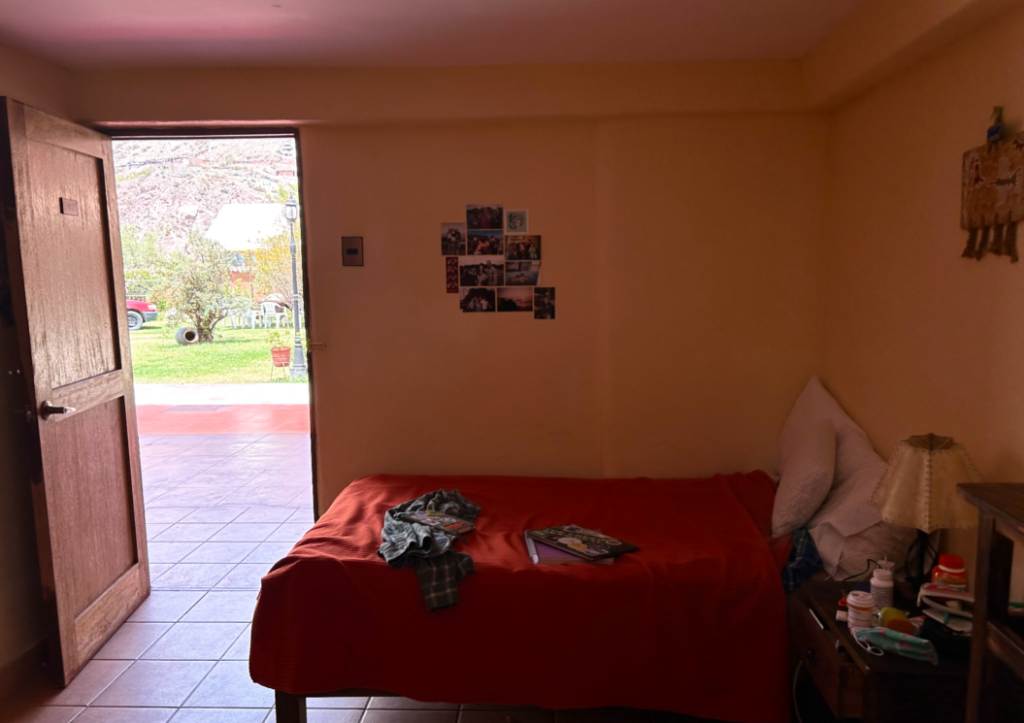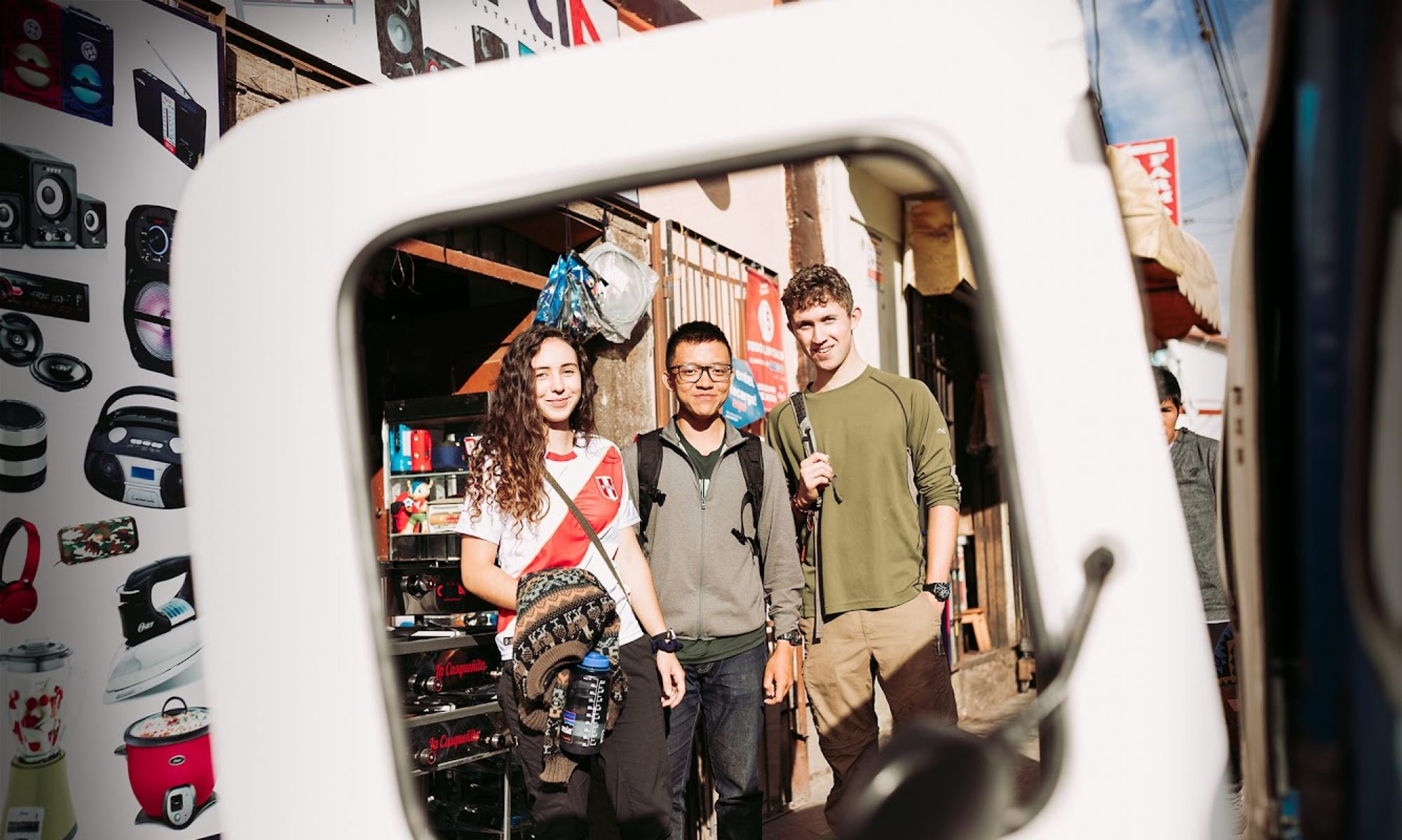by Teagan, Civic Semester Participant

Yesterday officially marked two weeks in Urubamba. It is crazy that in just fourteen days, we’ve learned our way to and from the market, created our own daily routines in the program house, and begun to communicate in local landmarks and inside jokes. We’ve gone through a whole cycle of breakfast crews and have each taken a turn cleaning up lunch and dinner. We know what fruit stands have the best avocados, and what “tourist trap” grocery stores to avoid. We’ve fallen into rhythm with the sun and the moon. I truly feel that we are on the way to becoming a family, and there is nothing that I look forward to more than thirteen other smiling faces at the dinner table each night.
While we’ve been physically in Urubamba for a fortnight, I didn’t feel quite settled until yesterday. After a lazy morning of laundry and YouTube, I put on a clean shirt and pair of jeans, did my hair with a bandana, and packed my fanny pack for a day out. I texted Tsering that I was going to Miga’s, a cafe with the best pain au chocolat in the Sacred Valley, and set foot outside of the house by myself for the first time.
I only had a rough itinerary, and with no Google Maps to consult or time constraint to abide by, I felt free. I just wanted to wander through the side streets and explore the unfamiliar cafes. The walk to the Plaza de las Armas felt so familiar under the soles of my Tevas, and I even stopped the impulse to take a photo of the mountains every three minutes—a real sign of growth.
At Avenue Mariscal Castilla, I was flooded by the honking of mototaxis and locals carrying heavy bolsas (shopping bags). My coin purse was quickly drained after buying a coffee, a new book (in Spanish), and an embroidered t-shirt. After my quick shopping, I finally found my way to Miga’s only to be greeted by a sign that read “cerrado por reformas” (“closed for renovations”). My plan to do our weekly homework on my laptop in the cafe quickly turned into some time spent journaling in the Plaza amongst the weekly artisan market and sounds of traffic. My noise-canceling headphones and sunglasses were only half-effective in the vibrant atmosphere and bright sun of Urubamba.
While journaling, I took time to reflect on the meaning of “global citizenship” and our role in Peru. Most of our conversations while playing cards and drinking tea inevitably become about the Civic Semester itself. We ask each other if we can truly immerse ourselves in critical service-learning while eating catered meals twice a day and living in a hotel that has weekly room cleanings? We feel spoiled by our accommodations, and the difference between our compound and the surrounding homes is stark. We feel stuck that there isn’t much we can do about our privilege other than talk about it openly and hold it at the forefront of our minds. But the nagging question remains: what lasting change can we really make in only three months?
The North Star that I keep returning to is that we are here to learn, not “help.” The Civic Semester is in no way a service trip but rather an immersive opportunity to learn about non-profit organizations making effective change on the local level. The effects of our time here will not be felt immediately in this community, but in future years when we incorporate these philosophies and experiences into our work.
While journaling, I also thought about how much time I spend taking photos and texting my family and friends instead of being present. Even when I am reading in the hammocks or playing Skip-Bo in our living area, the back of my mind is playing a nonstop reel of things I “need” to do back in Medford or clubs I “need” to join on campus. While it is bittersweet to already think about our time back in the US, I am always looking at our experiences in a wider context.
However, the future-oriented worrier disappeared, even just for an hour, during my trip to the plaza. Without a to-do list or pressure to have the most photographic experience, I could enjoy just being there—in my own world and yet surrounded by hundreds of strangers. For the first time in these two weeks, I could truly enjoy the taste of the coffee, the sounds of the fountain and Spanish chatter, and the smell of the fresh churros without thinking about what it all means in terms of my privilege, race, and identity as a global citizen.
When I got home, after feeling a little sunburnt and drained by the walk, I finally hung up the few photos of my friends and family that I had brought in my journal. Above my bed, the blue and black ink looked out of place against our warm-hued room, but having them taped up there for good felt like a major step in calling Urubamba my home.
